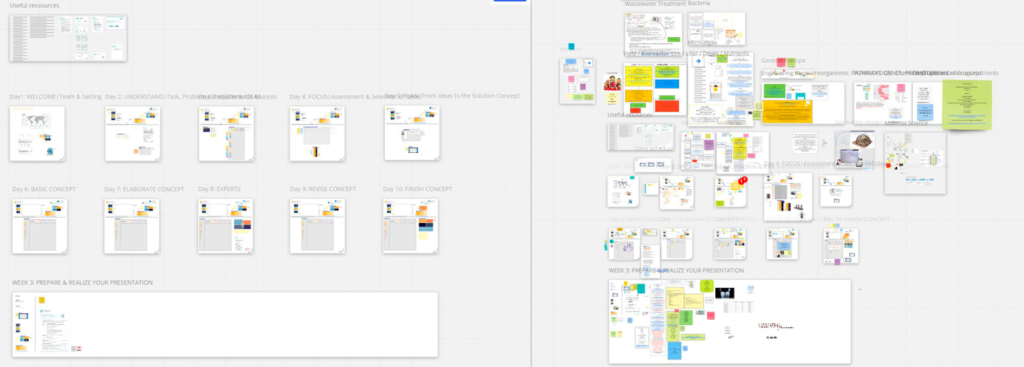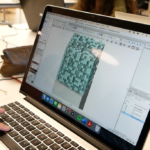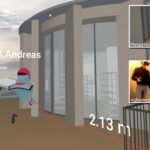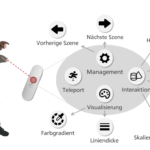Dieser Artikel ist auch auf Deutsch verfügbar.
From a blended international study project to a virtual experience of interdisciplinary learning in three months
written by the INSPIRED team (Lara Steinel, Robin Nikolei, Maik Mendler, Agata Staniek, Prof. Alexander Löwer)
INSPIRED (International Project Week for Interdisciplinary Research-Oriented Digital Learning) is a TU Darmstadt initiative that welcomes students from all over the globe and promotes interdisciplinarity, team collaboration, and mentoring through international project work. The program addresses the challenges of space travel and exploration through cooperation between the disciplines of aeronautics, mechanical engineering, materials science, and biology. This year, for the first time, INSPIRED was held under the umbrella of the European University alliance, UNITE! (University Network for Innovation, Technology, and Engineering). Due to the COVID-19 pandemic, welcoming students from the partner universities to Darmstadt for the face-to-face summer event was not possible. Instead, an alternative, fully digital program offer was developed: a variety of tools and structures were established to ensure smooth communication and user-friendly virtual teamwork environment, as well as to give an impression of the city of Darmstadt and its most important research institutions.
Moodle e-Learning course
In its preparatory phase, INSPIRED offers a wide range of online lectures and materials via the Moodle open-source learning platform. These summarize the fundamentals and core competencies of the disciplines involved in the project, giving the participating students of diverse academic backgrounds an overview of all the relevant fields of study. This ensures that all participants can comfortably engage in discussions during the main team project event. Moreover, up-to-date insights into the new technologies revolutionizing the fields of engineering and natural sciences, e.g., synthetic biology and 3D bioprinting, were provided. The e-Learning materials were accompanied by dedicated quizzes in order to evaluate the students‘ progress. Passing these was required for successful completion of the preparatory course and qualification for participation in the Virtual Team Project.
Virtual Team Project
Teamwork via Zoom and Miro
Two programs for digital collaboration were selected in order to enable the students to work in teams in a fluent and constructive way via the Internet. The audio-visual communication was maintained via a central, recurring Zoom call, with individual breakout rooms generated for each team. Through the main ‘INSPIRED lobby’, continuously occupied and operated by tutors, the students were assigned to their respective team rooms and always had a contact person to turn to. If the teams wanted to split up, additional breakout rooms were provided.
Miro was the most important software application of the three-week Virtual Team Project, providing a complete toolkit for involving distributed and remote teams in brainstorming processes, workshops, and decision making. The digital work spaces of Miro enabled streamlined synchronous and asynchronous collaboration. Visual templates, designed by the didactic advisors of the Center for Educational Development and Technology at TU Darmstadt (HDA), afforded the structure necessary to initiate and maintain teamwork during the early phase of the project, additionally facilitating team building. The applied Miro functionalities were intuitive enough to allow ‘learning by doing’. Keeping in mind the diversity of individual backgrounds of the participants, the pre-designed virtual layout placed great emphasis on presenting the most important software tools clearly in the user interface, simplifying operation of the partly nested menus. Thus, the students were able to work with the program with ease, e.g., via copy-and-paste and drag-and-drop, with no extensive technical skills required.

Support System
To provide the participating students with optimal guidance and didactic support, each team was assigned a mentor. All mentors – research assistants representing the relevant TU Darmstadt departments – had received appropriate methodological training from the HDA advisors and were prepared to take on pedagogical leadership of their teams and ensure that the participants were able to create a positive group atmosphere and a sense of belonging in the digital working environment. For example, they helped the teams to start each day with icebreaker questions or encouraged them to play online games together during their breaks. At the beginning of the project, the teams were given the opportunity to familiarize themselves with the support system and the software applications they were using through a fixed schedule. In the days that followed, the teams got more and more self-organized and the support from mentors was only available at set times. Every day, dedicated evening retrospectives were held to reflect on the progress of each student team. These were followed by internal discussions within the coordination team, including team mentors as well as scientific and didactic advisors, about the team dynamics, problems that arose during daily project work, and possible solutions.
Digital `graduation`
Following the three-week project event, the students presented the results of their work to all participants and a panel of jurors via Zoom. The 20-minute presentations were followed by Q&A sessions, during which the experts had the opportunity to ask questions and discuss certain aspects of the proposed scientific solutions in detail. Based on the jury’s assessment, the team awarded the most points was then announced as the winner.
Students‘ feedback
Overall, both the Moodle course and the Virtual Team Project were well received by the participating students. Praise was given to the smooth organization of the program, despite the pandemic-related uncertainty and the resulting rapid adaptation to the fully digital format.
The students particularly liked Miro as the virtual platform of their project work. The templates created for INSPIRED were readily applied and embraced, and some of them were creatively redesigned for other uses.
Although the participants were not able to get to know each other personally, they reported that they had a lot of fun working in international and interdisciplinary virtual teams.
Further information and insights into the project
Virtual Mars mission completed – A retrospective on the first INSPIRED by UNITE!
Visit also the INSPIRED project website !






Pingback: INSPIRED 2020 – E-Learning an Hochschulen